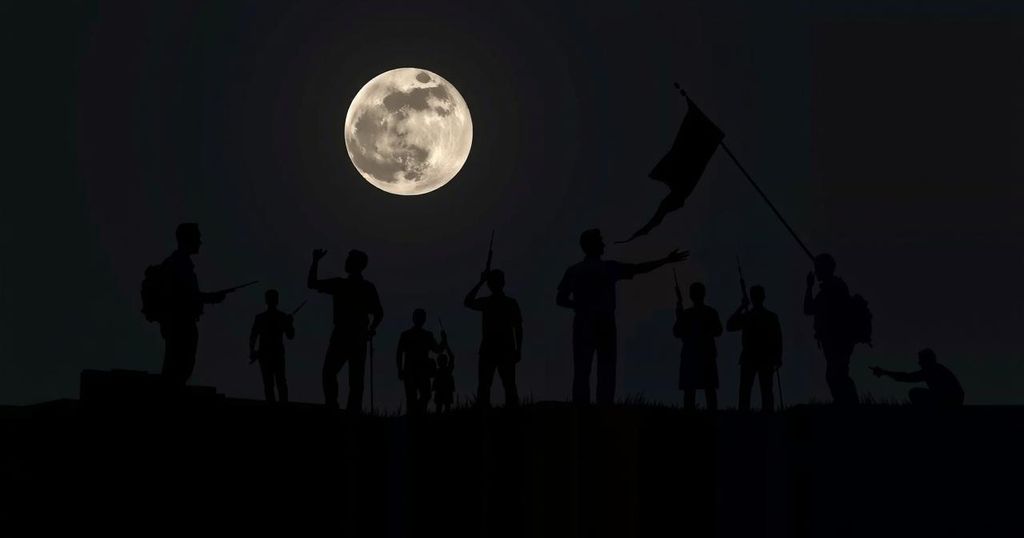An international tribunal declared Indonesia guilty of crimes against humanity during the 1965-66 mass killings, implicating the U.S., U.K., and Australia as complicit. The ruling calls for an official apology and investigation from Indonesia, which has been met with resistance from the government. The findings illuminate the past while empowering victims and their families to seek acknowledgment.
An international panel of judges has officially recognized that Indonesia perpetrated crimes against humanity during the mass killings that transpired from 1965 to 1966. This judgment also implicates the United States, the United Kingdom, and Australia as complicit in these atrocities. The findings were delivered by presiding head judge Zak Yacoob, a former Justice of South Africa’s Constitutional Court, via a video link to multiple countries, including Indonesia and Australia, following hearings conducted by the International People’s Tribunal on 1965 Crimes Against Humanity in November in The Hague. The indictment specifies that the Indonesian state, specifically through its military, bears responsibility for heinous acts that resulted in the deaths of an estimated 400,000 to 500,000 individuals, as well as the inhumane treatment of around 600,000, which included torture, forced disappearances, and sexual violence. The brutal campaign was spurred by the assassination of several high-ranking generals on September 30, 1965, leading General Suharto to attribute the violence to the Indonesian Communist Party (PKI). Utilizing Muslim organizations and paramilitary groups, the Indonesian military executed a systematic purge of suspected communists and leftists, targeting ethnic Chinese as well. The tribunal’s judgment further underscores the role of General Suharto and the propagandistic efforts that facilitated these widespread atrocities, categorizing the actions as tantamount to genocide. The panel concluded that the complicity of Western nations, specifically the USA, UK, and Australia, significantly contributed to the perpetration of these crimes against humanity. The judges made a formal recommendation that the Indonesian government extend an apology to the victims and their families and initiate thorough investigations into the actions of that period. However, Indonesia’s Chief Security Minister, Luhut Panjaitan, swiftly rejected these recommendations, stating that Indonesia would address the issue according to its values. The tribunal’s findings, while insightful, are not legally binding, as articulated by the lead prosecutor Todung Mulya Lubis, who highlighted the need for accountability after over five decades of denial. The proceedings included testimonies from numerous witnesses, including victims of sexual violence who provided their accounts under protective measures. As Nursyahbani Katjasungkana, a human-rights lawyer involved in the tribunal, has stressed, the evidence of the complicity of Western nations is well-documented and cannot be overlooked any longer. The ruling has been a poignant moment for the survivors and their families as they seek acknowledgment of their experiences. Journalist Febriana Firdaus echoed this sentiment, noting that the tribunal’s findings illuminate the necessity of discussing the 1965 events to achieve a comprehensive understanding of their historical implications.
The 1965-66 mass killings in Indonesia emerged from a politically charged environment where anti-communist sentiments surged following the assassination of several military leaders. General Suharto orchestrated a violent crackdown, leading to the deaths of hundreds of thousands of people, including suspected communist sympathizers, and perpetrating a range of abuses against those labeled as threats to the state. Although the tragedy has long been a controversial subject in Indonesia, the recent tribunal signifies a growing demand for accountability and recognition of human rights violations.
The judgment by the International People’s Tribunal on the 1965 mass killings represents a significant step towards recognizing the atrocities committed by the Indonesian state and its affiliates. It calls into question the role of Western nations in these historical events while pushing for accountability and reparations for victims. Despite the Indonesian government’s rejection of the tribunal’s recommendations, the ruling highlights the enduring quest for truth and reconciliation surrounding one of Indonesia’s bloodiest periods.
Original Source: time.com






